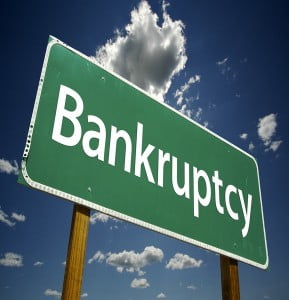Types of Debt Discharged in Bankruptcy
One of the benefits of filing Chapter 7 bankruptcy is the ability to discharge qualifying debt. Debt that is discharged is eliminated; meaning creditors are unable to pursue collection attempts against the debtor once the action is granted by the judge. The debtor is no longer liable for the debt. The action is granted after the meeting of the creditors with the discharge following about 60 days from the meeting. While all debts are not dischargeable, there are several that qualify that some may not be aware of.
Credit Card Debt
Many debtors are aware that credit card debt is dischargeable. Credit cards fall in with unsecured loans and include department store cards. Unsecured loans that may qualify for discharge include payday loans or personal loans from a bank or credit union. If you have an outstanding balance remaining from car repossession it may be eliminated in bankruptcy.
Medical Debt
If you have debt from a car accident this could be eliminated in bankruptcy as long as you weren’t under the influence of illegal substances or intended to harm another person with your vehicle. Medical bills are another common debt that may be eligible for discharge. This may include bills from a stay at the hospital, doctor visits or ambulance service.
Judgments and Lawsuits Filed Against You
Judgments and lawsuits filed against you may be eligible for discharge with certain exceptions. Lawsuits are common from collection agencies and creditors and a discharge may prevent a debtor from being sued or having assets seized. Utility payments that are past due may qualify for discharge but there is an exception; if you are trying to get service re-established you may need to pay a portion of the outstanding balance. Eviction with past due rent, personal loans from friends or family, excess social security payments and loan assistance or overpayments received by veterans may also be eligible for discharge.
